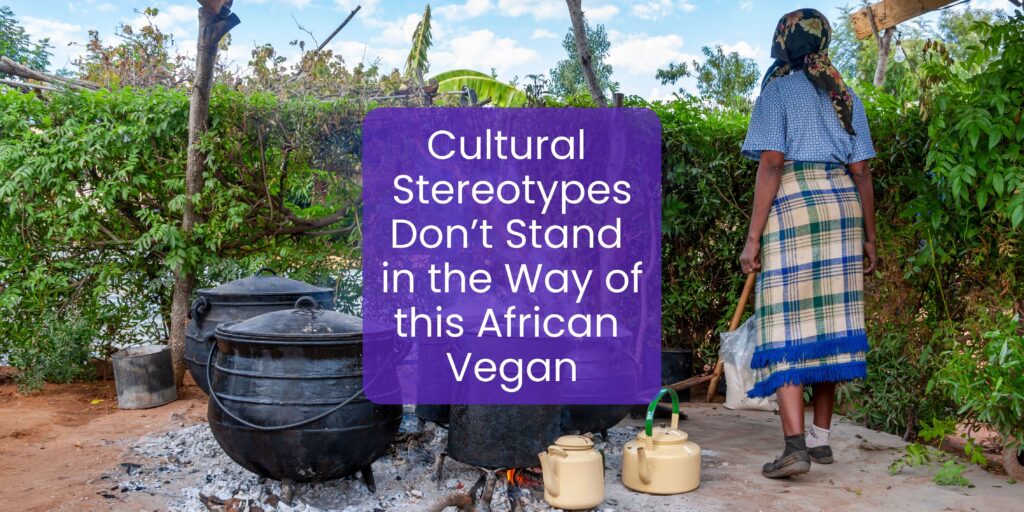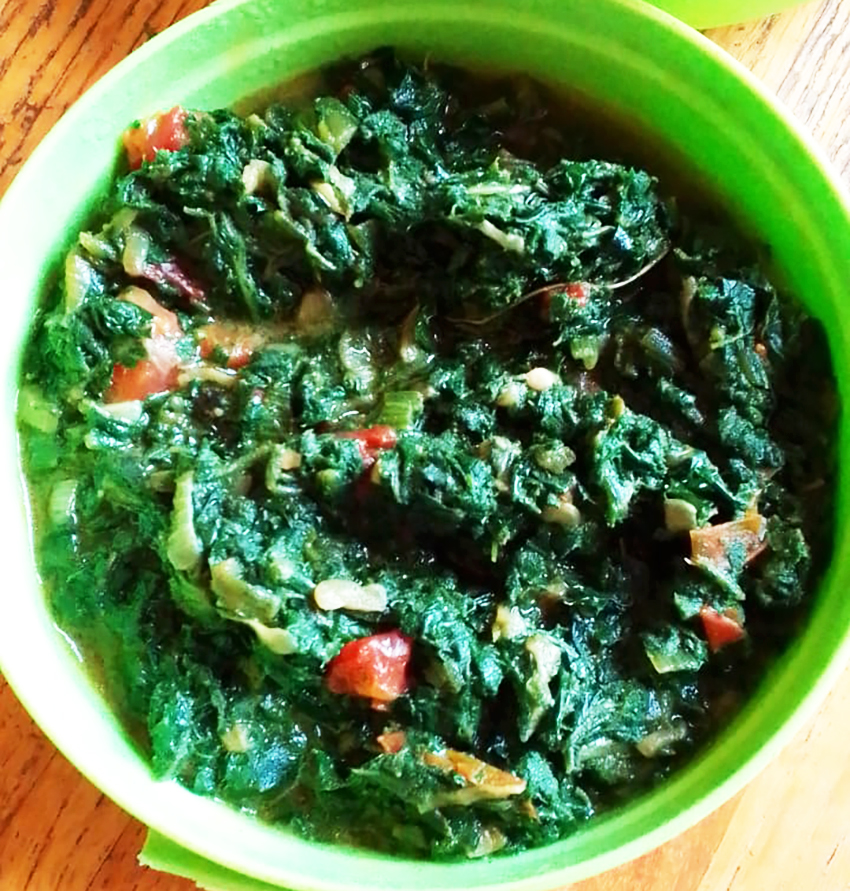
If you’ve never lived in South Africa you can have no concept of what a mental mainstay meat and dairy is in the country’s culture – in all of the cultures, should I say, and there are many. Some are more addicted than others, but for the vast majority of South Africans, veganism is a four-letter word that renders other profanities meaningless.
As we all are aware, the vast majority of vegans have faced any combination of others’ concern, ridicule, irritation, disbelief, accusations of ignorance as well as of egotism (inexplicably), and being excluded from social functions to downright shunning. In a country like South Africa, the largest meat producer and exporter on the second-largest continent, choosing not to eat meat, for whatever reason, is more than a stigma, it’s anathema.
The country is placed seventh in the world in meat consumption, at about 60kg per person per annum, according to a study by the Food and Agricultural Organisation (FAO), despite only ranking 24th in population density. This figure is well above the global average of 43.2kg (as of 2019), which is almost double the 23.1kg average in the 1960s.
But, of course, there are always those who make veganism work for them if that’s what they’ve decided, no matter the obstacles which, for some, are rather substantial.

Galetlale Magdeline Gopane, who goes by Maggy and lives in rural north-eastern South Africa, became vegan four years ago in an attempt to address her chronic rheumatic fever which has affected her heart. At the time, she didn’t realise she was lactose intolerant as well, as are over 80% of South Africans. A very visible result of this intolerance is the countrywide prevalence of a product called “amasi”, a sour, thickened, curdled milk which is bacterially pre-fermented, thus bypassing the need for the stomach to break down the lactose. The consumption of animal products is endemic in this country, from daily meals including meat three times a day, to cultural practices such as sacrificing animals to the ancestors on a regular basis. Avoiding meat and dairy, especially in rural areas is extremely difficult practically as well as culturally, and one could well be accused of witchcraft if one is known to handle lesser known-or-unknown plants!
So, as is the case for many vegans, Maggy’s journey started as a quest to improve her health and wasn’t particularly based on anything to do with animal cruelty or suffering, which is systemic in South Africa and can be seen anywhere one cares to look.
For example, and interestingly, an incident that is especially memorable for Maggy, who has witnessed animals being slaughtered in the fields all her life, was the killing and eating of a python. Says Maggy: “Perhaps strangely to some, what provoked my compassion for animals initially was witnessing this snake being brutally killed. I begged the people not to kill it, but was ridiculed for ‘not understanding’ that it ‘had to be killed’. I wasn’t clear on whether this was true or not – remember we live in grass huts and tins shacks and snakes coming into our homes is a continual menace – but I couldn’t understand the brutal manner in which they did it. There were some men from Benin and Madagascar there who eat snakes and for them it was just another meal which some of us South Africans sampled, but the way they had killed it made this seem almost immoral to me. This incident meant nothing to them, but it got me thinking about more than only my health, but also about the lack of compassion shown to other living things.”
She continues: “Years ago I worked in a government hospital as a victim supporter, dealing with victims of domestic violence and rape. Some years later I studied an Honours degree in theology, which I completed in 2018. I am a Christian reverend in my church, which also means I am not a strong follower of the predominant cultural practices here, and since I became aware of the atrocity that is the meat and dairy business today, it struck me that no God would condone the wholesale slaughter of His creations for absolutely no reason besides greed and ‘because it has always been this way.’ I now see these poor animals in the same light as the victims I used to work with in the hospital – miserable, trapped, and with no voice anyone cares to listen to.”
“We have been inculcated since we were children that protein comes solely from meat and dairy. If we applied any logic, we would consider how many animals are herbivores and are strong as hell. And bearing in mind the function of the liver and kidneys (commonly eaten here, as is tripe and other offal), for example, how illogical is that?” Maggy asks.
Interestingly, Maggy’s doctor is vegan, which is not at all common here, and has also made her aware of the use and abuse of hormones, steroids and antibiotics in meat and dairy production and she became even more convinced of the negative effects this could have on humans.
“So being a vegan for me is a two-way street – compassion for animals, yes, but also the benefits for myself. I normally teach people at my church that any situation should can be beneficial to all involved. The compassion I now have for animals gives me back better health and enables me to take care of myself much better.”

“Of course, my veganism has caused some friction in my family, especially as my husband and I had purchased some land years ago with the expressed intention of starting a poultry farm. As part of our planning, I visited one such farm and changed my mind on the spot. After that horror, to this day I feel nauseated by the smell of any kind of meat, and we are still at loggerheads deciding what we will do with the land now. My husband is stunned, and our families think I am crazy, but I made my decision that day and I stand by it.“
“I think I need to work hard now to find us something else to do that he would love as well, but that is plant-based instead. I’m thinking of vegan cheeses and milks – they’re popular everywhere but South Africa doesn’t have the phenomenal range of options of, say, European countries, or the USA.”
But interpersonal and cultural issues aside, there are many other obstacles facing any African vegan in rural South Africa, for example, in Maggy’s case, availability of water, and the machinations of the local chief. As we were conversing, Maggy was faced with an all-too-common rural problem here – fetching water. While the country has had good rainfall this season, many outlying areas are not plumbed in any way and don’t even have water tanks in sufficient quantity, and the women are expected to fetch large amounts of water from rivers and streams, which may be miles away. With Maggy’s heart condition, this is not wise, but neither is letting too many people know of her health condition – it makes her vulnerable to attack – so she doesn’t ask for help.
Another example is that of the local tribal chief who is “forcing people to cut their yards in half and won’t give people big yards anymore. It is so counter-productive because there is so much available land here that could help people become more self-sufficient. For example, years ago it would have been easy for anyone with some land to be vegan and have a plenty of food to eat,” she explains.
“But, of course, in those days of apartheid and extreme poverty, anyone who went out of their way to search for such food were treated as pariahs. But the fact is there were were plenty of fruit and vegetables and our elders knew how to work the land for it, unlike us today, who have allowed ourselves to be enslaved by Western lifestyles that most of us simply cannot afford. We have stopped doing things for ourselves and are reliant on handouts and small weekly wages which don’t even cover basic needs. I say we should go back to our roots and start farming our own food, and by that I don’t mean regarding cattle and livestock as health and wealth.”

“I make use of plant identification apps if I come across an unknown plant, and have found over 14 that other people consider ‘maitjadi’, which simply means something that has planted itself and is regarded as rubbish or a weed and no one eats it, apart from me now. The apps are fantastic, and some even come with recipes and nutritional values of the plant in question. For example, one of my favourites is the geranium plant, several species of which are rampant here. The leaves and flowers are edible, aromatic, and decorative, plus the leaves lower stress levels, reduce inflammation, strengthen the immune system, ease digestion, and are good for the kidneys, skin, and hair. Antiseptic, antibacterial, and anti-fungal properties also make it useful for healing wounds faster. But just try getting people to make use of what is all around them!”
Isn’t it eye-opening and heart-warming to read stories like these? Thank you Maggi, from TeamCow, for giving us a glimpse into your life and for your sharing about the challenges that you have had to overcome simply to be kind to animals. We admire and appreciate you!
Related Articles:
– 3 Interviews: Navigating Vegan Parenting
– Spotlight | Aviram Rozin, Founder of Sadhana Forest
– Spotlight | Shivya Nath, Vegan Traveller and Author
– 10 Farm Sanctuaries You Should Know About
For more content on veganism, check out the rest of the HappyCow blog. To find vegan food near you, at any time and place, get the HappyCow app. Don’t forget to follow us on Instagram, Facebook, Pinterest, and Twitter for more great vegan content coming your way!

